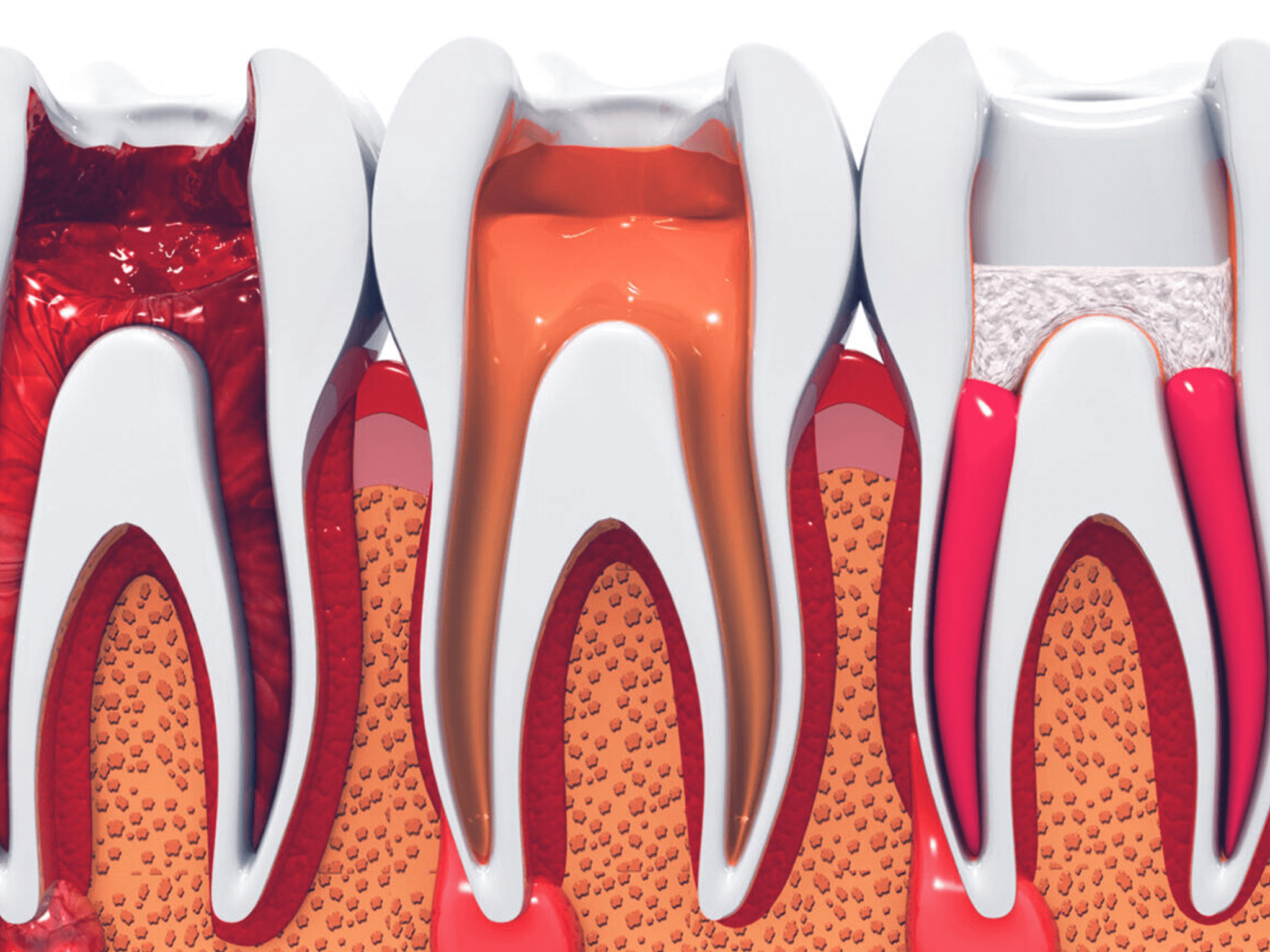Endodontics is a dental specialty that diagnoses diseases in teeth, tooth roots and surrounding tissues and deals with the etiology, prevention, and treatment of these diseases.
Root canal treatment is applied in cases where the blood vessels and nerves under the enamel and dentine layers of the tooth, which are called "pulp" and provide the vitality of the tooth, are damaged or injured, cannot repair itself again after damage or injury and lose its vitality (necrosis). Endodontic treatment includes the treatment of toothache, severe cold-hot sensitivity, dental abscess, discolored teeth, and teeth damage caused by trauma. Root canal treatment is the process of removing the inflamed or dead dental pulp from the root canals, sterilizing, and filling the cavity with a substance that is not harmful to health.
As a result of deep caries, the pulp (the neurovascular bundle) may not repair itself and the infection may spread to the root tip. If root canal treatment is not applied in this situation, it may cause inflammation at the root end of the tooth in the future and may damage the jawbone. Surgery or tooth extraction may be required. In summary, the aim in endodontics is to treat a deteriorated tooth and keep it aesthetically and functionally in the mouth.
When Is Root Canal Treatment Needed?
Root canal treatment is applied because the innermost layer of the tooth, the pulp (the neurovascular bundle), is damaged due to trauma, infection, and deep caries. Patients often apply to dentists with severe pain.
Is Root Canal Treatment a Painful Procedure?
Root canal treatment is not painful. Thanks to the local anesthetics and up-to-date and modern anesthesia techniques, the treatments of our patients are completed painlessly and in an extremely comfortable way.
Can Root Canal Treatment Be Completed in a Single Session?
Today, root canal treatment sessions can be completed in a single session, except for a few special cases, thanks to the development of the imaging methods, rotary instrument systems, the ultrasonic devices, and lasers. Root canal treatment can be completed in a single session in most cases when there aren’t severe bone infection, persistent inflammation, and abscess. In addition, the systemic condition and general health of the patient can also affect the number of the treatment sessions.
Will I Feel Pain After the Procedure?
Following the root canal treatment, especially after the treatment of live teeth, tooth sensitivity or pain may occur for a few days when pressed on the tooth. This is a normal discomfort that occurs after root canal treatment. By using the teeth that are undergone root canal treatment carefully, the discomfort disappears in a short time. The success rate of root canal treatments, where the correct method is applied by the endodontist, reaches 98%.





